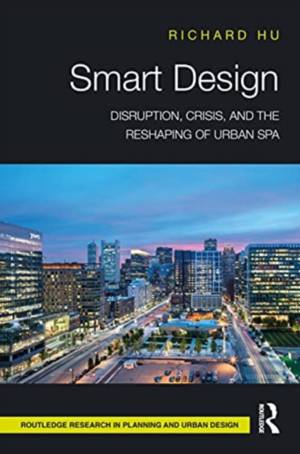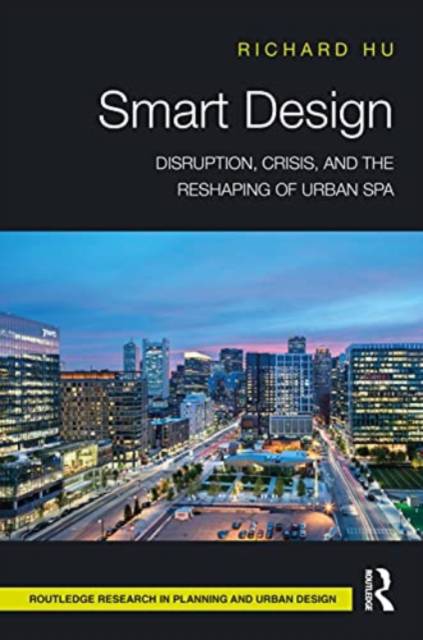
- Afhalen na 1 uur in een winkel met voorraad
- Gratis thuislevering in België vanaf € 30
- Ruim aanbod met 7 miljoen producten
- Afhalen na 1 uur in een winkel met voorraad
- Gratis thuislevering in België vanaf € 30
- Ruim aanbod met 7 miljoen producten
Omschrijving
This book tackles the emerging smart urbanism to advance a new way of urban thinking and to explore a new design approach. It unravels several urban transformations in dualities: economic relationality and centrality, technological flattening and polarisation, and spatial division and fusion. These dualities are interdependent; concurrent, coexisting, and contradictory, they are jointly disrupting and reshaping many aspects of contemporary cities and spaces.
The book draws on a suite of international studies, experiences, and observations, including case studies in Beijing, Singapore, and Boston, to reveal how these processes are impacting urban design, development, and policy approaches. The COVID-19 pandemic has accelerated many changes already in motion, and provides an extreme circumstance for reflecting on and imagining urban spaces. These analyses, thoughts, and visions inform an urban imaginary of smart design that incorporates change, flexibility, collaboration, and experimentation, which together forge a paradigm of urban thinking. This paradigm builds upon the modernist and postmodernist urban design traditions and extends them in new directions, responding to and anticipating a changing urban environment.
The book proposes a smart design manifesto to stimulate thought, trigger debate, and, hopefully, influence a new generation of urban thinkers and smart designers. It will be of interest to scholars, students, and practitioners in the fields of urban design, planning, architecture, urban development, and urban studies.
Specificaties
Betrokkenen
- Auteur(s):
- Uitgeverij:
Inhoud
- Aantal bladzijden:
- 168
- Taal:
- Engels
- Reeks:
Eigenschappen
- Productcode (EAN):
- 9780367421762
- Verschijningsdatum:
- 25/11/2021
- Uitvoering:
- Hardcover
- Formaat:
- Genaaid
- Afmetingen:
- 156 mm x 234 mm
- Gewicht:
- 435 g

Alleen bij Standaard Boekhandel
Beoordelingen
We publiceren alleen reviews die voldoen aan de voorwaarden voor reviews. Bekijk onze voorwaarden voor reviews.











